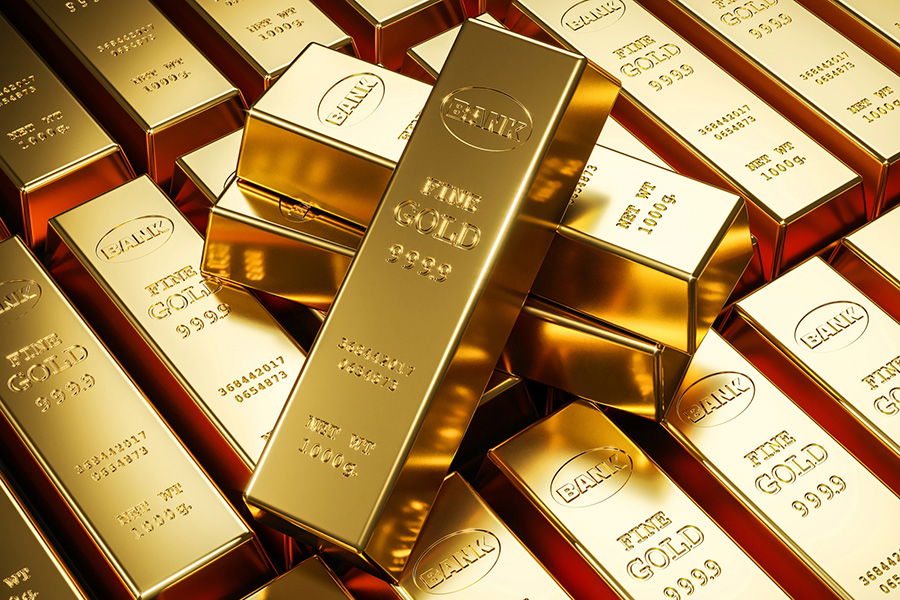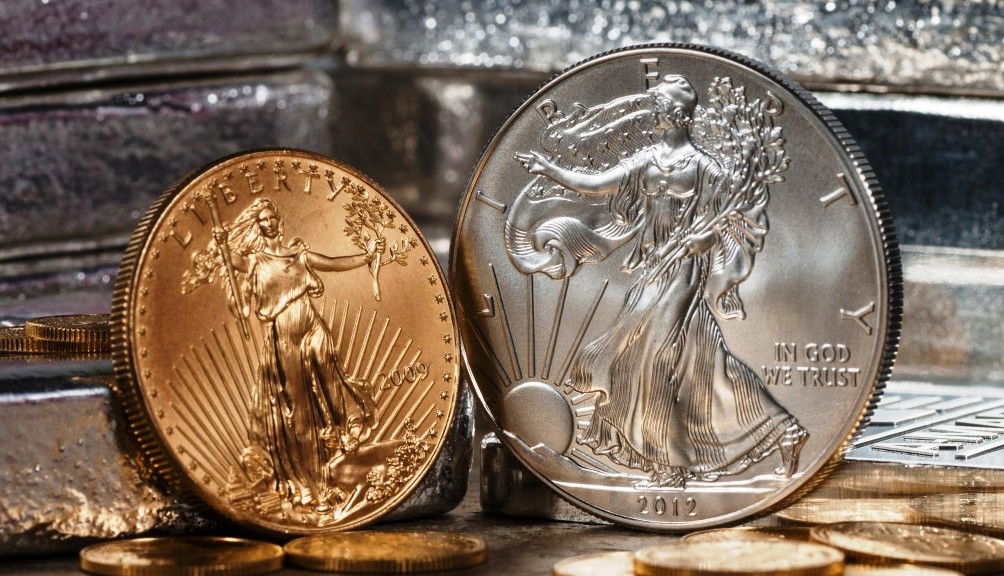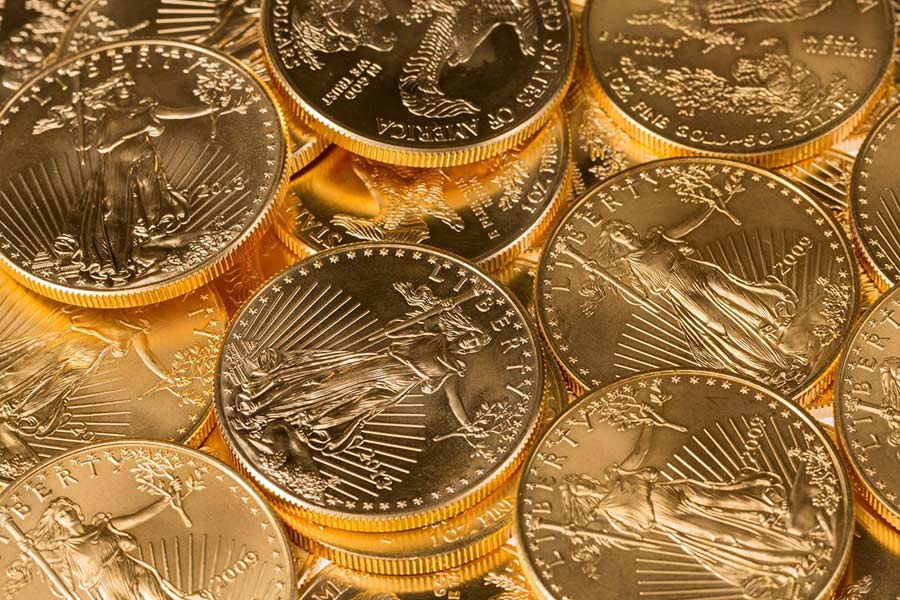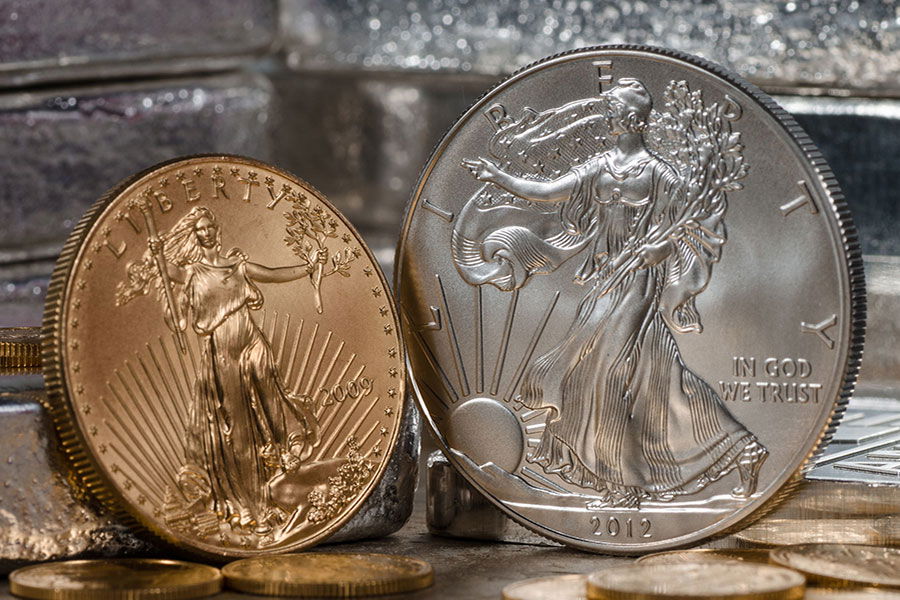Bullion isn’t just for collectors or vaults—it’s one of the most popular ways to invest in precious metals like gold and silver. Whether you’re looking for a hedge against inflation, a way to diversify your portfolio, or simply want to own physical assets, bullion can be a smart choice.

This guide explains what bullion is, the different forms it comes in, and how to invest in it through bars, coins, ETFs, and more.
Why Investors Choose Bullion
Precious metals like gold and silver have a limited supply and tend to hold or increase in value over time. They often perform well during economic uncertainty, making them a popular choice for diversifying portfolios and hedging against inflation.
To be considered bullion, a metal must have a very high level of purity. While bullion usually refers to gold and silver, it can also include platinum, palladium, and sometimes copper. Most bullion comes in coins, bars, or rounds and can be bought as physical metal, through exchange-traded funds (ETFs), or with futures contracts.
Types of Bullion
Precious metal bullion usually comes in three forms: bars, coins, and rounds. Other items like jewelry or vintage coins may contain valuable metals, but only investment-grade bullion is marked with exact weight and purity, making it easier to buy, sell, and verify.
Bars
The bullion bar is the most recognizable and popular store of precious metal. Gold and silver bars come in several sizes and weights, measured in grams or ounces, depending on the size. One ounce gold bars (or one troy ounce) and one ounce silver bars are among the most popular due to their affordability.
Other smaller weights are also popular, especially when it comes to silver, which is more volatile in price compared to gold. Among the advantages of buying bullion gold or silver bars are the lower premium prices compared to spot bullion prices.
Coins
In addition to bars, gold and silver bullion coins have long been a popular store of precious metal. Though the US Mint no longer produces these coins for regular circulation, they do still mint investment-grade bullion coins.
The American Eagle Gold coin, and the Silver Eagle coin are the best-known examples of these government mints. Other countries also issue similar investment silver and gold coins, such as Canadian Maple Leaf coins and the Australian Silver Kangaroo.
Rounds
Bullion rounds look just like coins, too, however there are significant differences. Rounds carry no face value and aren’t minted as legal tender by the government. Instead, rounds are private mints intended primarily as commemorative investments for coin collectors. While there are some gold rounds in circulation, most investment-grade bullion rounds are made of silver or copper.
Many silver rounds have been minted with a range of different designs, increasing their popularity as collector’s items.
Rounds usually have lower premiums when compared to the spot market price of gold or silver coins.
Irregular Bullion
While most bullion comes in standard forms, you may also encounter irregular pieces that contain investment-grade gold or silver. Think genuine gold jewelry, antique silver and even granulated silver, for example. Such items can be considered for their bullion value if they are genuine.
Keep in mind that if you plan to invest in any irregular form of bullion, you’ll need to be aware of the exact weight and purity of the precious metal. Otherwise, you won’t be able to liquidate your investment in the future.
Gold Bullion
Gold bullion refers to physical gold that has been melted down with a purity of 99.5% or 99.9%. Whether in the form of gold bullion bars or gold coins, gold bullion is one of the most popular safe-haven investments on the market.
In the form of both gold bars and gold coins, gold bullion is traded daily, with spot rates determined by markets such as the London Bullion Market Association. Gold and silver prices tend to be relatively stable. However, silver is more volatile than gold.
Both online and brick-and-mortar dealers can allow you to buy gold coins easily.
Silver Bullion
Silver bullion bars and coins are usually 99.9% pure silver (otherwise known as .999 silver). That means it contains only .5% of other non-precious metals. The American Silver Eagle is perhaps the most well known silver coin. Silver bullion coins are particularly popular among investors and collectors, as the smaller weight compliments silver’s tendency to fluctuate in price.
Like gold, silver is often used for portfolio diversification, as well as hedging against inflation. Silver can be easily purchased online, particularly silver coins. Remember to always check the latest market spot price when considering purchasing bullion coins.
Other Precious Metals
In addition to gold and silver, the precious metals industry offers other kinds of investment-grade bullion. Precious metals prices tend to be cheaper and therefore more accessible than gold or silver. Platinum and palladium are particularly popular today.
Palladium, for example, is a commodity with less volatility than gold or silver, making it an attractive asset for diversification. Precious metals investors also see platinum as a popular and affordable way to diversify an investment portfolio, as it has a growing number of uses across several industries.
Purchasing and Investing in Bullion
Generally speaking, buying physical gold or silver bullion isn’t complicated. You can purchase bullion from both online and brick-and-mortar precious metal dealers. Online dealers often carry lower premiums due to their reduced overhead costs.
There are several ways of investing in bullion that don’t involve buying physical precious metal.
Physical Form
Investors who wish to invest in precious metals can purchase physical bullion coins or bars from a reputable dealer. Gold and silver bars or coins can be purchased and kept in a home safe, with a reliable depository, or with a bank. You might also choose to purchase bullion in an allocated account at a bank, which will hold the bullion on your behalf.
Exchange-Traded Funds (ETFs)
While the idea of owning a physical gold coin is cool, it may not be the most practical investment vehicle depending on your portfolio. Investing in gold or silver through exchange-traded funds isn’t the same as owning it, but it provides convenient access to the bullion market by tracking prices.
A gold ETF also eliminates the problem of finding secure storage for physical gold.
Futures Contracts
A futures contract is an agreement between investors to buy or sell an asset at a set price on a specific date in the future. There are all manners of futures contracts available on the market, including for gold and silver bullion.
Because futures trade in contracts rather than shares, this form of investment is best suited to experienced investors. Futures contracts can easily run over $100,000 per contract, so they are significantly more high risk compared to other investment forms.
Frequently Asked Questions
What’s the difference between gold and gold bullion?
Gold is a natural precious metal known for its scarcity and popularity throughout history. Gold ore is mined and extracted from the earth before being melted for various uses.
Gold bullion is gold that has been produced for investment purposes, with bullion bars and coins being pure or nearly pure gold. On the other hand, for example, most gold jewelry will contain other metals, reducing the purity of the gold.
What is the cheapest way to buy gold?
Generally, the most affordable way to purchase gold bullion coins or bars is with an online bullion dealer. Because online dealers don’t have the kind of overhead costs that brick-and-mortar dealers do, they often offer lower premiums over the gold spot price.
Always be sure to check the current gold prices before you buy, to ensure you’re getting a fair deal.
Is gold bullion a good investment?
Because gold is less volatile than stocks and other precious metals, it is largely considered a safe-haven investment. Many investors see gold as a good hedge against inflation and other economic risks, as historically, it performs impressively through periods of economic difficulty.
What is the difference between proof coins and bullion coins?
Proof coins are early samples of a given coin used to ensure quality. Because they are historically scarce, rare proof coins are often highly valuable as collectors’ items.
Bullion coins, on the other hand, are any high purity precious metal coinage designed for investment purposes. They are not as rare as proof coins and don’t often carry the same scarcity premiums for precious metals investors.
What are numismatic coins?
Numismatics is the study and collection of coins in general. While bullion coins are valued based on their precious metal content, numismatic coins are collectors’ items and carry premiums based on their rarity.
Where can you buy gold bullion?
The easiest way to buy gold bullion is through a bullion dealer. You can either find a local dealer and visit in person, or find an online seller. While the general services are the same, keep in mind that there will be variations between bullion dealers. Things like pricing, availability and quality can all vary, so you may want to do some shopping around before making a purchase.




